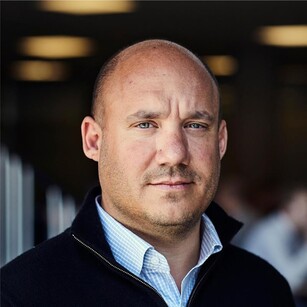When Pierre Claude Fumoleau talks about the pharmaceutical industry, it is with the authority of someone who has seen it evolve from the inside.

Today, as Senior Vice President for AbbVie’s Intercontinental region, he oversees operations in 49 countries and manages more than 5,500 people. His remit encompasses everything outside the United States and Europe, from advanced markets such as Japan, Canada, and Australia to rapidly developing healthcare systems in Brazil, China, and across Africa and the Middle East.
Fumoleau’s career began at Bristol Myers Squibb before he joined AbbVie in 2007, just ahead of the company’s split from Abbott.
“It’s been an amazing journey,” he told BioPharmaDispatch. “I’ve done almost everything you can do in this industry and now I have the privilege of leading a region that is incredibly diverse, dynamic and full of opportunity.”
From his vantage point, Fumoleau sees the stark contrasts between health systems every day. At one end are highly advanced universal models, such as those found in Canada, Japan, and Australia. At the other end are low and middle-income countries striving to expand access and sometimes leapfrogging stages of development.
China and Brazil are now building biotech ecosystems at extraordinary speed, he says. “China has developed more biotech companies in the past three years than California,” he notes. Rather than fearing this, he sees it as a call for established markets to sharpen their competitiveness. “They are ramping up in terms of patient access and innovation. It is another world.”
This global perspective also shapes his view of Australia, where AbbVie has long maintained a significant presence. “Australia is a big market for us and strategically very important,” he says. “It is also one of the 49 countries I manage. But, at the end of the day, the decisions Australians make about their system are for them to own.”
After two years engaging with Australia’s policy debates, Fumoleau offers both praise and concern. He points to universal healthcare, the Pharmaceutical Benefits Scheme and the country’s overall health outcomes as achievements worth celebrating. He also sees troubling cracks. The first is the erosion of clinical trials. “We start to see attrition in clinical trials in Australia,” he says. “Not because of the quality of the doctors or academics, but because the standard of care here lags. We cannot run trials against outdated comparators when the rest of the world has moved on.”
The second is the growing reliance on out-of-pocket payments. AbbVie’s research shows that 43 per cent of Australian patients must pay privately, either in part or in full, for their medicines. “That is at odds to the idea of universal healthcare,” he argues. “It should concern politicians, patients and the public alike.”
These issues add up to a stark choice. Either Australia reinvests and reforms or risks sliding into a two-tier system with inequity and lost competitiveness. For Fumoleau, the problem is less about process and more about politics. “You can have the best HTA in the world, but if you have no budget, it just becomes a tool to ration access,” he says. “At the end of the day, it is a political call. Where do you want to invest?
The system, he suggests, has leaned too far into cost containment at the expense of speed. “Every country is wave one launch for us,” he explained. “We develop global plans. But if reimbursement takes years because of endless price negotiations, patients suffer. That is the reality.” He points to treatments for hepatitis C and Parkinson’s, where long delays meant lost years of productivity and well-being. “These drugs are not just about survival. They are about restoring people to work, family and quality of life. That is investment, not just cost.”
What troubles him most is inertia. “The numbers speak for themselves. If 43 per cent of patients are already paying privately and if clinical trial competitiveness is falling, then something is broken.”
He calls for a political reset. “Leaders have to be decisive. Either raise the PBS budget closer to that of peer countries like Germany or Japan, or introduce universal co-insurance mechanisms. Otherwise, inequality will grow.”
Despite his critique, which will resonate with many Australians frustrated with delays and the glacial pace of reform, Fumoleau remains optimistic about the future of medicine and about the country’s potential role. He speaks with excitement about the decade ahead and the prospect of controlling Alzheimer’s and transforming cancers into chronic diseases. “This is not fiction. It will be reality,” he insists. “But whether Australia benefits depends on the choices made now.”
Asked whether the industry itself has lessons to learn, he does not hesitate. “We are not perfect. We have missed endpoints and sometimes been slow to bring real-world data. But our vision is clear. Transformational medicine that impacts society. That requires massive investment and, yes, sustainable profit. Without that, there is no pipeline.”
Fumoleau says the debate in Australia is not merely academic. It is about whether a wealthy, advanced country will continue to offer its people the best that modern science can deliver or settle for a slower, narrower pathway. “You have to decide,” he says. “Is it enough to live to 83 with Parkinson’s or Crohn’s. Or do you want to significantly increase quality of life and productivity with the world’s latest innovation? That is the choice Australia must make.”

